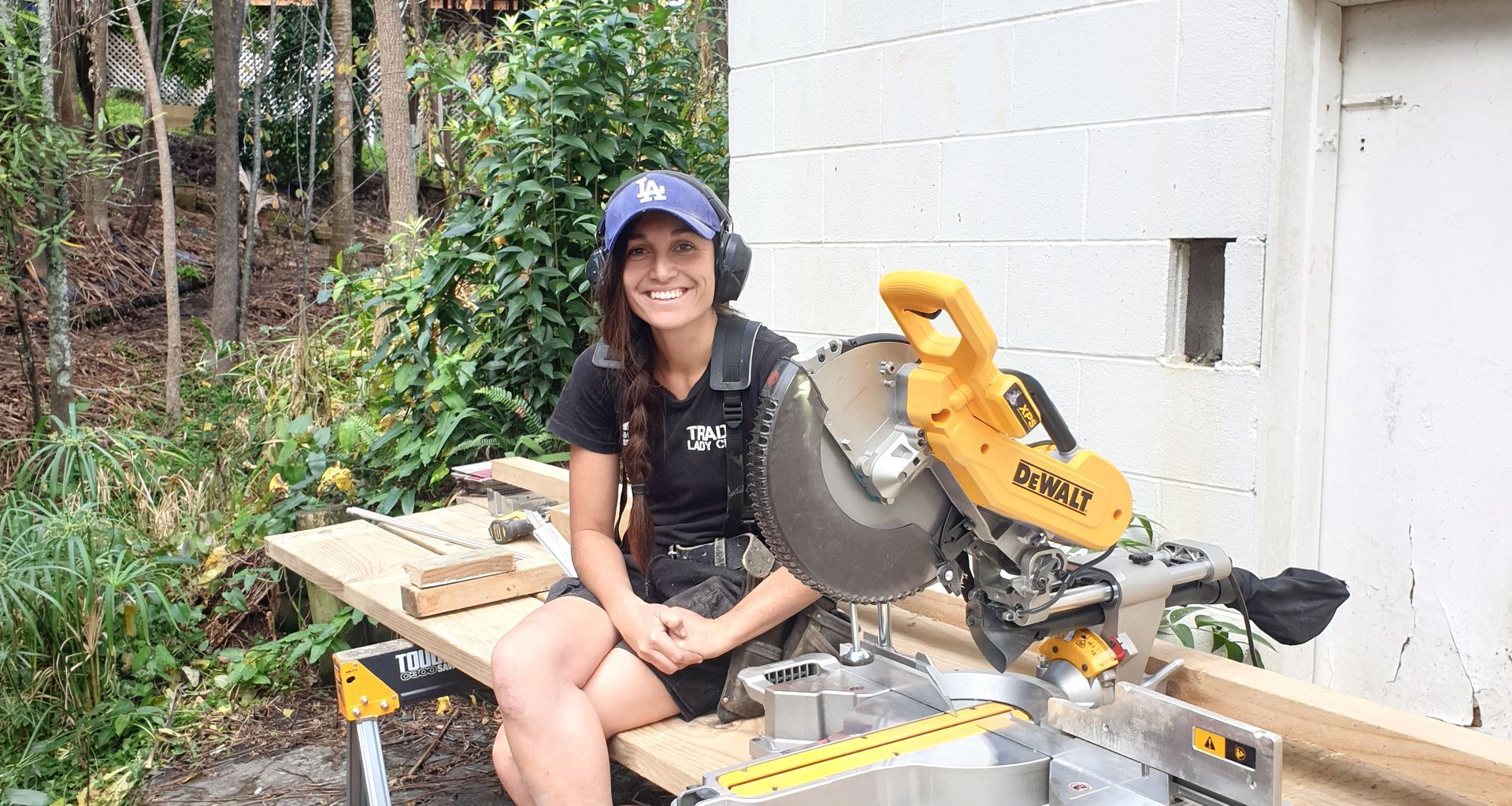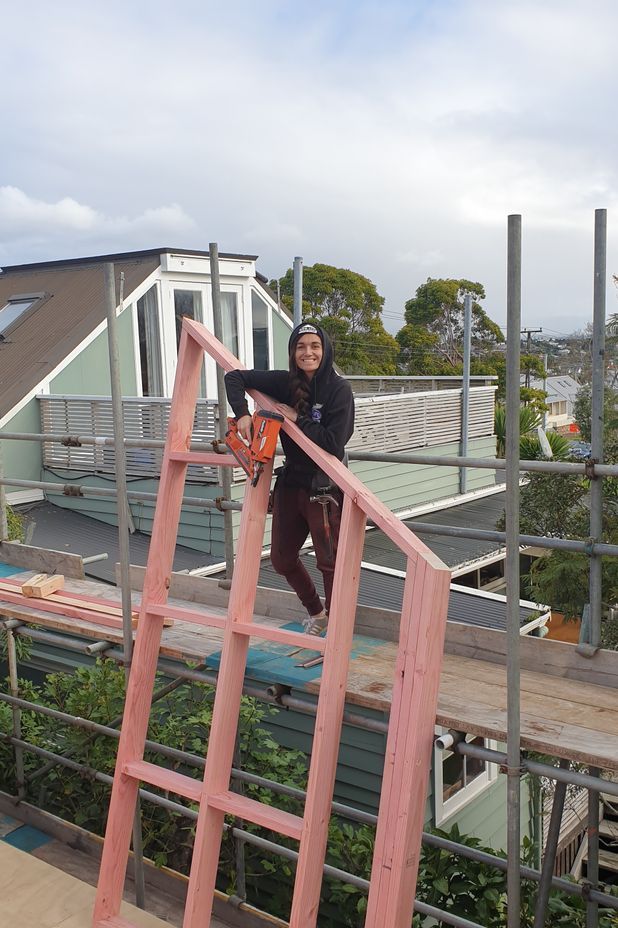Women in construction: advice on how to navigate a booming, male-dominated industry
Written by
21 December 2022
•
6 min read

The building industry in New Zealand is booming – there is no shortage of demand for the construction of both residential and commercial properties. The country’s housing stock needs expansion to accommodate for population growth, immigration and a host of other factors – and this has provided for a significant chasm between sky-high demand and an often dire shortage of supply in the industry.
This dearth of supply doesn’t just manifest in the form of the well-documented shortage of building materials – in many cases, there aren’t enough tradespeople to keep up with the sheer demand. Good, qualified builders are a hot commodity, and the industry is crying out for more of them.
Increasing the pool of potential talent would improve this situation, and one way of doing this is by turning to a cohort of people who make up 50% of the population: women. Despite this figure, only 13% of construction workers are women, according to Statistics New Zealand – and this shrinks to about 3% when considering those who are actually on the tools.
To get a better understanding of these statistics, the barriers to entry in the industry for women, and the best advice for young women aspiring to become builders, ArchiPro sat down with Rebecca ‘Bex’ Smith, a builder at QBS about her experiences on the tools.
ArchiPro: What initially drew you to the construction industry, and what were the first steps you took after you decided to become a builder?
Bex Smith: Four years ago they were screaming out for tradies, and they still are. So I saw it as a good opportunity – it’s an industry with a huge amount of potential growth, and there’s serious money to be made too.
I wanted to get into project management initially, and I thought that my best path forward to achieve that is to get on the tools and work my way up to it. I thought ‘people aren’t going to take me seriously as it is, so I need to get some proper experience and show them that I can do it’.
So once I made the decision, I just started telling everyone that I was considering it – just dropping it casually into every conversation I had. And New Zealand is so small, word of mouth travels fast. One day I was talking to a builder friend of mine, and I asked him ‘what do you think? Is it silly to try and be on the tools?’ He said no, and told me to do what I want to do.
It just so happened that my friend’s boss was looking for a woman to join his team, so the opportunity really just fell into my lap.

AP: Your scenario was quite lucky then – what do you recommend to women who may not know other builders?
BS: If you don’t already know a builder, I guarantee you you’ll know someone who does. But it doesn’t even need to be in the trade you’re looking for – if you know a sparky, or a plumber, talk to them and they will probably know someone.
But if that doesn’t work out, my next step would be to go to social media. Instagram is huge at the moment for trades – the job is so visual, people love seeing progress photos and before and after’s – you’d be crazy not to have a social media presence as a building company in my opinion.
So I would recommend going to Instagram and searching a hashtag, or the region you’re in, with keywords like ‘building’ or ‘construction’ and see what’s out there. Take notice of what they write in the caption, whether they post photos of their team – these things indicate what the company culture is. And if they have a particularly impressive Instagram presence, that generally means they’re investing in marketing and that they’re keen on investing in their future.
Find a company you like in this way, and message them directly on Instagram. Often, it’s the boss that runs these accounts, so you can potentially go straight to the top dog and make your case.
And if sliding into the DMs doesn’t work, my next plan was to get some experience by doing a pre-trades course. There are a couple of options – you can do a broad course where you try different trades to see which one you like, or there are targeted ones if you know which trade you want to get into.
AP: What other advice would you give women who are interested in entering the construction industry but are hesitant because of the perceived barriers to entry?
BS: I’m not going to sugarcoat it – it is a very labour-intensive job, and you do need to be OK with breaking a sweat for most of the day. You do need strength, but a lot of it isn’t just about that – it’s about knowing the right way to carry a piece of Gib, for example. There isn’t much in the job that requires brute strength, it’s more about endurance because you’ll be doing physical labour for hours on end, often in the hot sun. You need to come to terms with that, and that comes with time.
So my advice would be to go down to Bunnings and lift a bag of concrete, lift a piece of ply, or Gib – all of the things you’ll be working with constantly, every day – and the minute you can walk 100 metres with those, you’re ready to go.
A lot of people are intimidated about being surrounded by men all the time – and I think it really depends on the men. People have assumptions that sites are nasty, people swear like sailors, they wolf whistle at you. Fortunately for me I haven’t experienced that at all within our team, they’re all so respectful. But I think that just comes down to finding the right company that’s the right fit.
If you have a good company culture with a mature team, you shouldn’t be dealing with any of that stuff. I think that’s why I’m lucky working at QBS, because the boss Troy looks for good people, not just good builders.
Learn more about QBS and its services and recent projects.